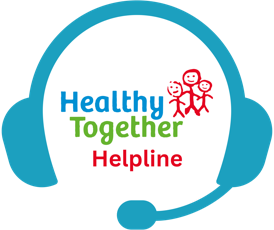What is neurodiversity?
Neurodiversity means that everyone’s brain works in different ways. Some people think, learn, or feel things a little differently, and that’s okay. Being neurodivergent doesn’t mean something is ‘wrong’.
Some examples of neurodivergent conditions
- Autism – Someone might find loud noises or bright lights too much, or prefer routines. They may also be really good at remembering facts or spotting patterns
- ADHD (Attention-Deficit / Hyperactivity Disorder) – Someone might have lots of energy, find it hard to sit still, or get distracted easily, they may be creative and full of ideas
- Dyslexia – Reading or spelling can be tricky, people with dyslexia often have great imagination and problem solving skills
- Dyspraxia – Moving and writing might be hard for someone, and they might be great at thinking in pictures or telling stories
How can University Hospitals of Leicester help?
The hospital wants to support people who are neurodivergent during pregnancy, birth, and becoming a parent. They know this time can feel hard and are there for you.
Tell a midwife you are pregnant as soon as you can so they can help you. Click here to register with a midwife.
Below, you will find a toolkit. This is something you can fill in to help doctors and midwives understand how to support you and how they can make things easier for you. You can do it on your own or with help from your community midwife. Please show it to the people who look after you so they know what you need.
You can also use this plan with your personalised care plan.
If you take medication for your neurodiverse condition
- Talk to your doctor about your medication
- For most medications, the safest thing is to carry on. You and your baby are more likely to have a healthy pregnancy if you are well
- Some medications need to be changed but do not stop medication without talking to your doctor or nurse first
- Sometimes additional vitamins or medicines are recommended.
If you think it would help, a note can be added to the digital system to remind maternity staff about any support or adjustments you may need because of your neurodiversity. You can ask your midwife to add this for you.
Additional resources
- Listen to the Leicester Maternity Matters podcast episode on Spotify
- ND Birth podcast
- ND Birth
- Autistic Parents UK
- Health for Under 5s- LGBTQ+ support
- Health for Under 5s- Mental health support
Video resources
Giving birth at home
This video was not produced by Health for Under 5’s and may contain adverts.
Sensory care items for your hospital bag
This video was not produced by Health for Under 5’s and may contain adverts.
Asking your midwife to communicate differently
This video was not produced by Health for Under 5’s and may contain adverts.
Going to theatre during birth
If you have any suggestions of how University Hospitals of Leicester can make things better for neurodiverse people, please contact Dalvir Kandola by email: dalvir.kandola@nhs.net
Leicestershire Partnership NHS Trust is responsible for the writing, publishing and updating of the content on this page.






